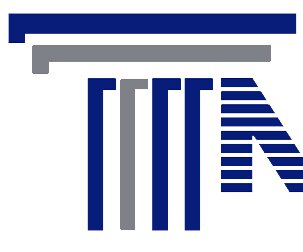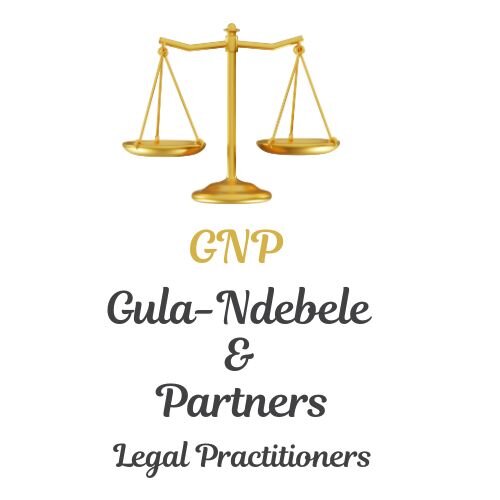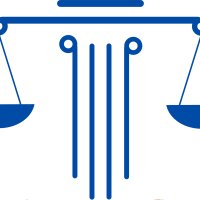Best Criminal Litigation Lawyers in Zimbabwe
Share your needs with us, get contacted by law firms.
Free. Takes 2 min.
Or refine your search by selecting a city:
List of the best lawyers in Zimbabwe
About Criminal Litigation Law in Zimbabwe
Criminal litigation in Zimbabwe involves the legal process where individuals or entities are prosecuted by the state for actions classified as crimes. The judicial system aims to maintain law and order, ensuring justice is served through a structured process of investigation, prosecution, and defense. The process is governed by various laws, including the Criminal Procedure and Evidence Act, which outlines the conduct of criminal trials, rights of the accused, and the roles of legal practitioners.
Why You May Need a Lawyer
There are numerous situations in which you may require legal assistance in criminal litigation:
- Arrest: If you are arrested, a lawyer can help protect your rights and offer advice on your legal options.
- Charges: Facing criminal charges can be daunting. Legal representation ensures you understand charges and potential consequences.
- Trial: A lawyer can represent you in court, presenting evidence and arguing your case before a judge or jury.
- Plea Bargaining: Legal counsel can negotiate plea deals with prosecutors to reduce charges or penalties.
- Appeal: If convicted, an attorney can assist in appealing the decision to a higher court if there's a ground for appeal.
Local Laws Overview
Several local laws govern criminal litigation in Zimbabwe, each playing a critical role in legal proceedings:
- Criminal Procedure and Evidence Act: This is the cornerstone legislation that articulates procedural rules for criminal cases.
- Penal Code: Defines various criminal offenses and prescribes penalties.
- Constitution of Zimbabwe: Enshrines fundamental rights applicable in criminal proceedings, such as the right to a fair trial.
- Court Systems: Cases are heard in different courts depending on severity, with Magistrates' Courts, High Court, and Supreme Court forming tiers of the judicial system.
Frequently Asked Questions
What should I do if I'm arrested?
Upon arrest, it is essential to remain calm, exercise your right to remain silent, and contact a lawyer as soon as possible.
How can a lawyer assist me if accused of a crime?
A lawyer can clarify the charges, represent you in court, negotiate with prosecutors, and provide guidance throughout the judicial process.
Can I represent myself in criminal court?
While it's legally permissible, self-representation is not advisable due to the complexities of criminal law. Professional representation is recommended.
What happens if I can't afford a lawyer?
You may apply for legal aid through organizations like the Legal Aid Directorate, which provides assistance based on eligibility criteria.
What is bail, and how does it work?
Bail is a conditional release from custody, sought by the accused to remain out of detention until trial, often secured with a financial deposit or assurance.
How long does the criminal litigation process take?
The duration varies based on case complexity, court schedules, and whether appeals are pursued. Simple cases can conclude quickly, while others may take months or years.
Are there alternative resolutions to going to trial?
Yes, plea bargains or mediation in some instances can resolve a case without trial, depending on the nature and circumstances of the charge.
What are my rights during a criminal trial?
Rights include: presumption of innocence, the right to a fair public trial, the right to counsel, and the right to appeal a conviction.
What is the role of witnesses in criminal trials?
Witnesses provide testimony to support either prosecution or defense, helping establish facts and evidence crucial for case resolution.
Can I appeal a conviction or sentence?
Yes, you can appeal to a higher court if there's a belief of a legal or procedural error in your trial, subject to specific legal grounds and timeframes.
Additional Resources
For further assistance in criminal litigation, consider reaching out to or researching the following organizations and bodies:
- Legal Resources Foundation: Offers legal advice and resources for those unable to afford private attorneys.
- Zimbabwe Human Rights NGO Forum: Provides support for cases related to human rights and offers some legal assistance.
- High Court and Magistrates' Courts: Serve as the primary venues for hearing criminal cases. Understanding procedures here can be beneficial.
- Law Society of Zimbabwe: Maintains a directory of registered lawyers who can provide legal assistance.
Next Steps
If you require legal assistance in criminal litigation, consider the following steps:
- Research and Contact a Lawyer: Begin by researching qualified criminal lawyers or contacting the Law Society of Zimbabwe.
- Prepare Documentation: Collect relevant documents, evidence, and details about your case to assist your lawyer in building a strong defense.
- Understand Fees and Legal Aid Options: Discuss legal fees upfront and explore options for legal aid if financial resources are limited.
- Stay Informed: Attend all scheduled court dates and maintain open communication with your legal representation to ensure a comprehensive defense strategy.
Lawzana helps you find the best lawyers and law firms in Zimbabwe through a curated and pre-screened list of qualified legal professionals. Our platform offers rankings and detailed profiles of attorneys and law firms, allowing you to compare based on practice areas, including Criminal Litigation, experience, and client feedback.
Each profile includes a description of the firm's areas of practice, client reviews, team members and partners, year of establishment, spoken languages, office locations, contact information, social media presence, and any published articles or resources. Most firms on our platform speak English and are experienced in both local and international legal matters.
Get a quote from top-rated law firms in Zimbabwe — quickly, securely, and without unnecessary hassle.
Disclaimer:
The information provided on this page is for general informational purposes only and does not constitute legal advice. While we strive to ensure the accuracy and relevance of the content, legal information may change over time, and interpretations of the law can vary. You should always consult with a qualified legal professional for advice specific to your situation.
We disclaim all liability for actions taken or not taken based on the content of this page. If you believe any information is incorrect or outdated, please contact us, and we will review and update it where appropriate.
Browse criminal litigation law firms by city in Zimbabwe
Refine your search by selecting a city.

















